- Administrator
- Albums and Singles

Backwards is very happy to announce the NEW My Cat Is An Alien studio double-album!
From the extended foreword insert by David Keenan: "What are we to make of My Cat Is An Alien, the duo of the brothers Roberto and Maurizio Opalio, titling this new extended sound work The Dance Of Oneirism? [...] None of the tracks have titles; instead we feel our way by number, by movement. Our co-ordinates are fixed, or more properly suggested, by the listing of instruments. Self-made double-bodied string instrument, handmade pocket harp, pedal effects, wordless vocalizations, modified analog drum machine, mini-keyboard, alientronics. But even here nothing is straightforward; everything is invented, shrunken, self-built, inchoate: alien-ated. The session was recorded – instantly composed – in MCIAA's "Alien Zone," situated in the Western Alps, and it sounds it. The central fact of MCIAA's music has always been space but they have never sounded quite so far away, so removed. [...] The music is extremely sensual. The rhythms have a contrary cold/organic quality to them, the feel of the pulse as the breath is held, but soon even that dies down and we are left with an extended, timeless moment, the space between one breath and the next. Occasionally there is the sound of strings, strange steel resonances that populate the music like ghosts, the ghosts of Roscoe Holcomb's high, lonesome sound, of Dock Boggs and the sanctified steel of Washington Phillips. Ash Ra Tempel met Timothy Leary in the Alps [...] The transmissions are fuzzy up here and at points it makes for a music of almost terrifying quiet. It is minimal, sure, but MCIAA are not so much interested in repetition as in eternal expansion. [...] The Dance Of Oneirism is a music of unknowing, a dance with a phantom, the letting go of a dream. It is MCIAA's greatest long form work. It has tributaries that run deep into the past, ghost channels that facilitate two-way travel, even as its destination, in the words of the late Conrad Schnitzler, is determinedly future, future, future." - David Keenan
Includes a photographic Art Book by Roberto Opalio. Silkscreened image by the artist on Side D. In first 80 copies LP1 and LP2 come each in different colours.
More information is available here.
Read More
- Administrator
- Albums and Singles

Re-issue of the AMM tape recorded between 1981 and 1985 by JD Emmanuel, a new age composer who has received a lot of praise from people like Lieven Martens and John Olsen.
These recordings signify Emmanuel's praise to the course of the day. Starting off slowly, with morning synth meanderings, walking through midday, running in the evening and closing the day with midnight meditation.
"Somewhere hidden in the deepest part of the Self is that special place, where One can go within to the most ancient part of one's Self and connect with the origin of Self. Ancien Minimal Meditations reaches into that special place of creation of the Self and its Oneness with the Creator of All."
Side One:
Morning Worship (5:26)
Midday Attunement (12:33)
Side Two:
Evening Devotional (7:12)
Midnight Meditation (10:27)
Recorded using three Sequential Circuits Pro-One synthesizers and a Yamaha SK-20 Poly-Synthesizer.
- * Limited to 400 copies
- * Full color thick cardboard sleeve
- * 180 gr. vinyl
- * 100% Analogue sound
- * Mastered by JD Emmanuel
More information is available here.
Read More
- Administrator
- Albums and Singles

Enigmatic faces stare out from tableaux on walls and caves.
Impenetrable and mysterious they haunt the mind.
On the last edge of vibration they cross.
Unwelcomed and uninvited. A murmur in a shadow.
A last breath.
They have a tendency to walk through walls.
Wheels of fire spit flames into the night.
A dark road echoes.
The stars vanish.
A face in darkness shines.
A ribbon on a trace weed.
The last curl of smoke.
Eyes wide and seeing.
They came.
More information is available here.
Read More
- Administrator
- Albums and Singles

ÜTOPIYA? not only continues Oiseaux-Tempête's first album, but it extends it. The travels move this time to Istanbul and Sicily providing the food for its urgent energy and indomitable drive. While the structures still hint at moments of post-rock, they go further now, almost into the area of free-jazz yet without losing a directness rooted in punk (highlighted perhaps by the presence of G.W.Sok from The Ex). In addition, the bass clarinet of Gareth Davis references both the roughest of experiments of Akosh Szelevényi and of The Stooges Fun House.
More information can be found here.
Read More
- Administrator
- Albums and Singles
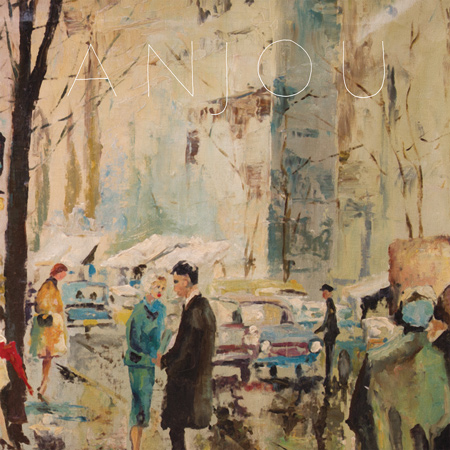 All art, whether by design or by accident, contends with time. But music’s relationship to it, like cinema’s, is pronounced, as is evident in the case of Anjou. On their Kranky debut, ex-Labradford members Mark Nelson and Robert Donne join Haptic’s (and Innode’s and Pan•American’s) Steven Hess for eight melancholy preludes focused on form, color, light, and time. Their songs are short, no longer than nine minutes, and expressionistic, dotted with half-heard rhythms and implied melodies orbiting a tonal center. They issue into the room in suspended animation and hang there mysteriously, heavy like a storm cloud. In them, the passage of time ceases to mark minutes and seconds and instead denotes the availability of different perspectives. Sounds are typically thought of as moving through spaces, but in this case spaces move through sounds, guided in their course by a trio of directors with an impossible view from above.
All art, whether by design or by accident, contends with time. But music’s relationship to it, like cinema’s, is pronounced, as is evident in the case of Anjou. On their Kranky debut, ex-Labradford members Mark Nelson and Robert Donne join Haptic’s (and Innode’s and Pan•American’s) Steven Hess for eight melancholy preludes focused on form, color, light, and time. Their songs are short, no longer than nine minutes, and expressionistic, dotted with half-heard rhythms and implied melodies orbiting a tonal center. They issue into the room in suspended animation and hang there mysteriously, heavy like a storm cloud. In them, the passage of time ceases to mark minutes and seconds and instead denotes the availability of different perspectives. Sounds are typically thought of as moving through spaces, but in this case spaces move through sounds, guided in their course by a trio of directors with an impossible view from above.
When it comes to melody, Anjou is all dark, thickly applied colors. It makes more sense to talk about the album’s latent melodies actually, as many of its songs, like "Lamptest" and "Readings," begin and end in nearly the same place with minimal development happening in between. They don’t move along linearly, from left to right, they vibrate in place or hum from top to bottom, congealing ultimately as textures, not as melodic lines. What distinct melodies there are generally fall by the wayside, usurped by stereoscopic radiation that bleeds out into fields of deep red, blue, and purple, all reverberating on an imposing black canvas.
A sense of darkness and of concealment permeates the entire album, from the structural level down to the instrumental, where fragmented or otherwise murky sediment constantly works to disguise the music’s formal features. The structure of each song is easy enough to spot. There is the looped synthesizer, the guitar feeding back on itself, the electronic drums beating softly in the background, static interference, live percussion, and sudden, solitary chords that open up in the noise like valleys opening up in the mountains. These are repeated, subdued, emphasized, distended, or otherwise modified in different ways, just enough to create a sense of movement, a sense that something is about to take shape. What that is never becomes clear, however. The shapes turn to shadows, the shadows to blurry movements, and the movements themselves to doubtful illusions.
The song titles all point in this direction either directly or obliquely: "Lamptest" and "Backsight" in the sense of shining a light on things and peeling back the dark, or at least trying to; "Readings" and "Adjustment" in the sense of interpreting something unclear; and "Sighting" and "Inclosed" in the sense of what can and can’t be seen, no matter how hard one looks. Because Anjou is so strongly visual —and because it is so effective at focusing the ear on a place where melody, rhythm, and texture meet— time is frozen and highlighted, made conspicuous in its subordination to space, color, and light. These songs don’t unfurl, they shift focus, as if a camera were recording them by moving up and down the length and width of a musical object. What we hear is just a small section of some endless unknown thing vibrating out in all directions. In this way time is made equal to space. It becomes an extra dimension and not just a series of hash marks reminding us that something was here once, but is now gone. Music has always made time available to the ears. On Anjou, Nelson, Donne, and Hess transpose it for the eyes.
samples:
 
Read More
- Administrator
- Albums and Singles
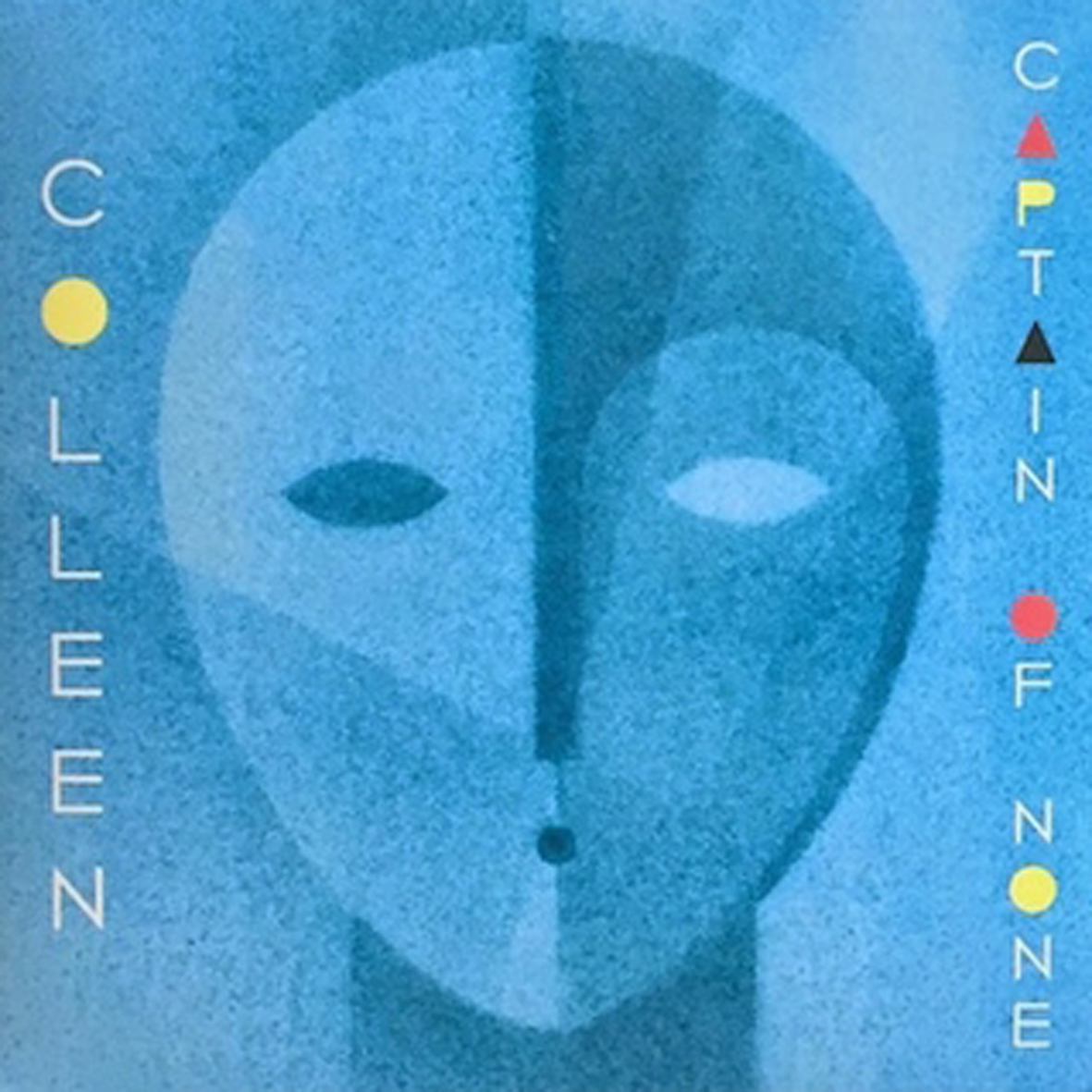 Back in 2013, Cécile Schott unexpectedly ended a very long hiatus in appropriately unexpected style by reinventing herself as an eccentric, viola da gamba-wielding singer/songwriter.  Captain of None is both a continuation and refinement of that vein, but with an additional twist: Schott has found a way to subtly integrate her love of Jamaican dub techniques into the Colleen sound.  That turned out to be a great idea, as I have already seen Captain compared to Arthur Russell's World of Echo more than once.  While it does not all that sound much like Russell stylistically, Schott's hushed and poetic pop experiments are similarly idiosyncratic and starkly intimate.  Also of note: Captain of None is yet another absolutely stellar Colleen album.
Back in 2013, Cécile Schott unexpectedly ended a very long hiatus in appropriately unexpected style by reinventing herself as an eccentric, viola da gamba-wielding singer/songwriter.  Captain of None is both a continuation and refinement of that vein, but with an additional twist: Schott has found a way to subtly integrate her love of Jamaican dub techniques into the Colleen sound.  That turned out to be a great idea, as I have already seen Captain compared to Arthur Russell's World of Echo more than once.  While it does not all that sound much like Russell stylistically, Schott's hushed and poetic pop experiments are similarly idiosyncratic and starkly intimate.  Also of note: Captain of None is yet another absolutely stellar Colleen album.
If there was a prize for "Least Jamaican-Sounding Album," it is hard to imagine Captain of None not at least making the short-list, as Schott's incorporation of dub techniques is only that: Colleen still sounds far more like an early music ensemble than like King Tubby.  Well, for the most part, anyway–there are three exceptions.  The first is the bittersweetly melancholy "Salina Stars," which beautifully augments Schott’s plucked bass line with a bleary, echoing melodica melody that unavoidably calls to mind a heartbroken Augustus Pablo.  The secondly distinctly "dub" moment is the mostly a capella "This Hammer Breaks," which sounds like a modern spiritual beset by some very busy and clattering Muslimgauze-style percussion. The last recognizable stylistic nod to Jamaica ("Eclipse") actually seems like a legitimate stab at dub-reggae, boasting a fluid bass pulse; ghostly, dissolving vocals; and clattering, panning percussion flourishes.  Nevertheless, it remains distinctly Colleen-ified, as the hyper-minimal music is just a very simple viola da gamba pattern endlessly repeated.  For the remainder of the album, Colleen's studio enhancements are just that, seamlessly adding a haze of warm reverb to Cécile’s plucked arpeggios and a patina of deliciously blurred unreality to some otherwise very minimal and direct music that is distinctively, singularly "Colleen."
While the aforementioned "Salina Stars" is a definite highlight in its own right, Captain's greatest moments are its bookends: the opening instrumental "Holding Horses" and the closing title piece.  Bass plucks aside, "Horses" sounds a lot like a rippling, neo-classical harp piece, albeit one where the twinkling arpeggios are trailed by burbling, hallucinatory after-images and warm washes of reverb.  It is quite a stunning feat, as there is so little actually being played (only the bass part has any perceptible melodic motion), yet the piece feels like a shimmering, vibrant, and multilayered tour de force.  "Captain of None" achieves a similar feat of improbable alchemy, maintaining an insistently repeated pattern of just a few notes for the entire song, but filling the spaces with a soft-focus haze of delay and gradually ratcheting up the intensity with some very unusual percussion.  Also, Schott's repeating and minimal lyrics ("captain of nothing, captain of none") gradually take on the hypnotic feel of a mantra as the piece builds in power.  Yet again, Schott manages to be absolutely captivating with just a handful of notes.
The remaining pieces are quite memorable as well, if varied.  The infectiously melodic "Soul Alphabet," for example, sounds like a jaunty bit of steel-guitar Americana transposed to warmly finger-plucked viola da gamba.  "Lighthouse" eventually arrives in a similar place after a lengthy introduction, but augments its rolling and rootsy crescendo with blurred and spectral layers of frayed angelic vocals.  Elsewhere, the minor key "I'm Kin" is a darker variation of the "Captain of None" aesthetic.  Though it does not work quite as well as the title piece, it highlights yet another fascinating element of Captain of None: Cécile’s cryptic and poetic lyrics are a huge part of the album's sublimely alien mystique, eschewing anything remotely mundane for meditations on Argos and kinship with stones and ice (and dogs hanging from trees).  It is frankly easier to imagine this music being made by a Siren than by a regular human, as everything about it seems completely and effortlessly detached from our current time and place.  Also, its directness and guileless simplicity seems too weirdly pure to come from anyone who has not been silently living in a cave or monastery for decades.  The only real critique I can muster is that Captain of None basically sounds like mermaid washed up on the shore to unleash bizarre, crystalline pop perfection upon the world, but only achieved it about half the time.  The rest is merely very good.
Samples:
 
Read More
- Administrator
- Albums and Singles
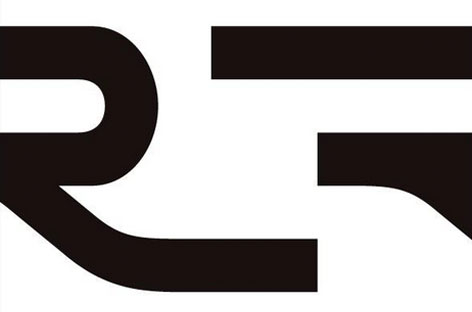
After a break of 5 years, Alva Noto continues his "Xerrox" series with Xerrox Vol. 3, entitled "Towards Space," a journey that started with Xerrox Vol. 1, referring to the "old world," and Xerrox Vol. 2, heading "to the new world."
Using the process of copying as a basis, the "Xerrox" series deals with the manipulation of data by means of endless reproduction. due to the inherent vice of the procedure that becomes especially visible when copies are made from copies, everyday sounds are so much altered that they can be hardly associated with the source material anymore. as a result, entirely new sounds are created that, being copies of originals, become originals themselves.
On Xerrox Vol. 3, a new aspect enters the scene. inspired by childhood film memories from the 1970s including Tarkovsky‘s adaption of Solaris and La Isla Misteriosa y el Capitán Nemo based on Jules Verne's "The Mysterious Island," the record shows Alva Noto's private side. with its very intimate atmosphere, it is a personal reflection of dreams, an imaginary journey through emotional landscapes or, as he himself puts it, a "cinematographic emotion of a soundtrack to a film that actually does not exist in reality."
Alva Noto himself further states, "I see Xerrox Vol. 3 as my most personal album so far. I have to admit that this emotional output is a surprise even for myself. it remains exciting how the last two albums of this series will sound like."
More information can be found here.
Read More
- Administrator
- Albums and Singles
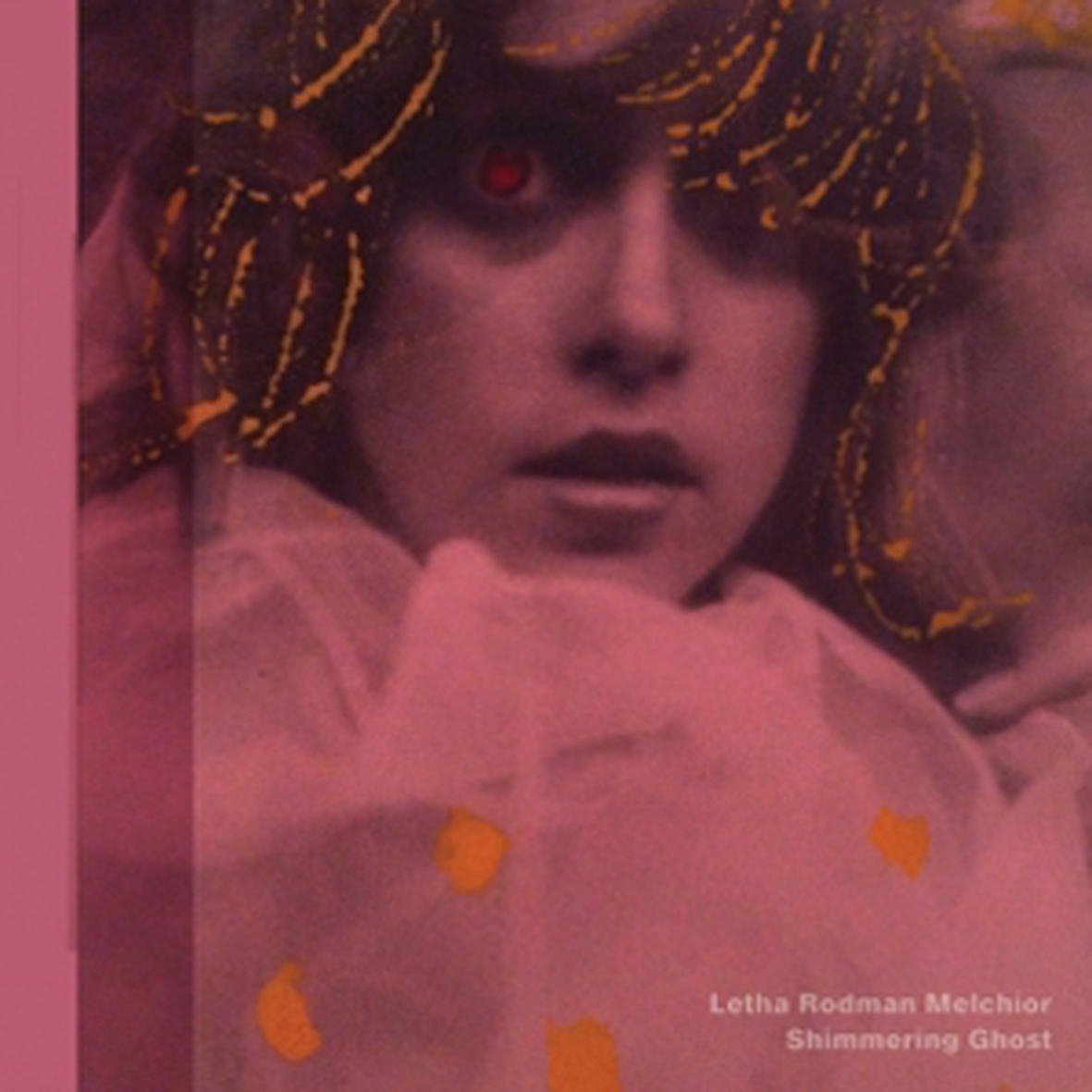 This posthumous release is a thoroughly bittersweet affair, as Shimmering Ghost is both Rodman Melchior's final album and her finest hour (probably, anyways).  A series of fractured and flickering collages, these pieces are "experimental" in the best sense of the word, using an unpredictable and simple mixture of instrumentation, found sounds, and field recordings to weave together a very complex, intimate, and evocative narrative.  At its best, Ghost makes me feel like I am drifting through an immersive, mysterious, and disorienting stream of someone else's dreams and memories.  No one else makes albums like this.
This posthumous release is a thoroughly bittersweet affair, as Shimmering Ghost is both Rodman Melchior's final album and her finest hour (probably, anyways).  A series of fractured and flickering collages, these pieces are "experimental" in the best sense of the word, using an unpredictable and simple mixture of instrumentation, found sounds, and field recordings to weave together a very complex, intimate, and evocative narrative.  At its best, Ghost makes me feel like I am drifting through an immersive, mysterious, and disorienting stream of someone else's dreams and memories.  No one else makes albums like this.
It is hard to figure out where to even begin with this deeply otherworldly and unique album, as sound collage is hardly anything new, yet Letha’s execution somehow makes it feel that way.  The bulk of the magic lies primarily in the details and the textures, though it also helps that Rodman Melchior was smart and inventive enough to find a way to make a haunted-sounding album seem nuanced and sensual rather than like another boring dark ambient album.  Her success in that regard stems largely from her decision to seamlessly drift between the familiar and the unfamiliar as though the barrier separating our own plane from the supernatural one has weakened and become porous.  The opening "Edymion/MWCIE" is an especially fine example of that tight-rope walk, as its initial Sonic Youth-esque guitar unexpectedly gives may to a beautiful harp waltz from guest Mary Lattimore, albeit one enhanced with eerily swooping, Theremin-like wordless singing amidst subtle hisses and shudders. Eventually, the harp interlude dissipates, but the bottom has effectively dropped out for good, as the hapless guitar figure now has to contend with intruding horses, church bells, and something resembling a Bollywood soundtrack before it all dissolves once more into a hypnotic locked groove swirling with hallucinatory peripheral touches.
The best pieces, however, are the ones that start out completely disorienting and unstuck in time and only escalate from there without any nods towards recognizable contemporary music.  On "Marsh of Diseases," for example, a brief church organ introduction quickly dissolves into rippling snatches of harp amidst a delirious haze of echoing voices, hiss, panned crackling, and a sublimely warm bed of swelling drones.  "Southern Highlands," on the other hand, begins with a man announcing that he has a ghost story to share.  As his tale starts to unfold, however, a simple and bittersweet piano reverie appears beneath him and the tale itself is dismembered into a swirl of echoing and reverberating fragments.  While those two pieces are the album’s clear highlights, Shimmering Ghost is strewn with a number of other unexpectedly beautiful interludes, such as the blurred and doubled monologue that appears over a twinkling and melancholy piano at the end of "Red Moon/Fra Mauro."
As far as I am concerned, Shimmering Ghost has no real flaws: I may wish that it were a little longer or that the balance leaned more heavily towards Letha's eerier, dreamier side, but the album works perfectly exactly the way it is.Although several pieces feel like noisy, textural filler when examined on their own, they provide necessary transitions between the more beautiful, substantial pieces and serve to heighten the escalating sense of dislocation and shimmering unreality: this album works as an effectively sequenced and abstractly phantasmagoric narrative arc rather than as a start-to-finish cavalcade of highlights.  Also, the relative brevity works in Shimmering Ghost's favor, as none of the less memorable stretches sticks around long enough to overstay their welcome.  More importantly, Letha's work feels singularly guileless, purposeful, and unpretentious despite its sophistication, resembling Outsider Art or Folk Art made by someone who actually knew exactly what they were doing and what had come before, but chose to step outside the experimental music continuum in an effort to make something more sincere and meaningful (and succeeded beautifully).  Shimmering Ghost is a minor masterpiece.
 
Read More
- Administrator
- Albums and Singles
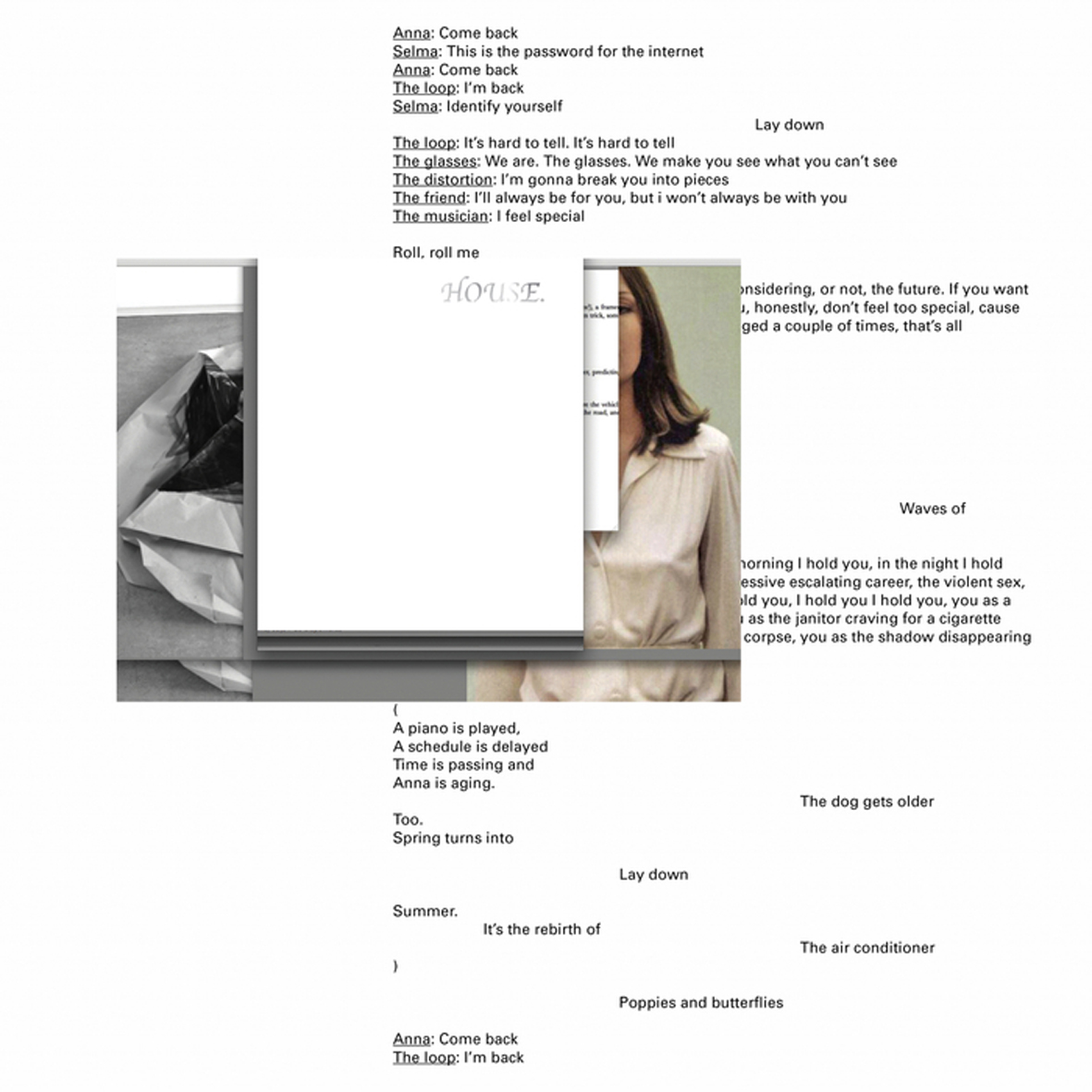 I have historically not followed Felicia Atkinson’s prolific career too closely, aside from enjoying the excellent Je Suis Le Petit Chevalier album on Aguirre, but this latest experiment in surrealism/dada/collage/detournement piqued my interest.  For one, it is billed as a "concrète/post-digital oratorio in five parts" and was made in willfully constrained/minimalist fashion using only a laptop with limited software (Atkinson has previously sounded like a one-woman psych-rock band).  Also, it was partially inspired by being frightened as a child by Pierre Henry's "Apocalypse de Jean" and is built upon texts ranging from George Bataille's erotic prose to Felicia's own writings to snippets from random Italian art magazines.  To me, that either sounds like a recipe for a pretentious towering fiasco or a goddamn masterpiece, but the end result is mostly neither, though one piece ("L'Oeil") does manage to veer quite close to the latter.
I have historically not followed Felicia Atkinson’s prolific career too closely, aside from enjoying the excellent Je Suis Le Petit Chevalier album on Aguirre, but this latest experiment in surrealism/dada/collage/detournement piqued my interest.  For one, it is billed as a "concrète/post-digital oratorio in five parts" and was made in willfully constrained/minimalist fashion using only a laptop with limited software (Atkinson has previously sounded like a one-woman psych-rock band).  Also, it was partially inspired by being frightened as a child by Pierre Henry's "Apocalypse de Jean" and is built upon texts ranging from George Bataille's erotic prose to Felicia's own writings to snippets from random Italian art magazines.  To me, that either sounds like a recipe for a pretentious towering fiasco or a goddamn masterpiece, but the end result is mostly neither, though one piece ("L'Oeil") does manage to veer quite close to the latter.
The album kicks off with "Against Archives," which is built upon an insistent electronic throb beneath a haze of eerie whines and deeply submerged, barely-there chord swells. Then, somewhere past the halfway point, the piece downshifts into just a deep bass pulse and a very industrial-sounding high-hat and Felicia begins softly, tunelessly, and distractedly singing lyrics like "I'm a sister, I'm a lover" like someone who has no idea that they are being recorded.  The following "L'Oeil" plunges even further into electronic noise territory, but there is a very appealing push-and-pull between Atkinson's gnarled, crunching white noise waves and snatches of some distant, beautiful piano music.  More importantly, Felicia's vocals are very prominent, sounding like a very intimate, hushed, and hurried confessional that seems at least partially culled from Bataille's "Madame Edwarda."  It also feels simultaneously erotic and macabre (there is a repeating line about hanging from a shower curtain rod), but apparently chronicles a conversation with a sweater, which is an amusingly wry bit of deception.
The shorter "The Book is the Territory" departs somewhat from noise to drift into some blearily shimmering Je Suis Le Petit Chevalier-style psychedelia, but also throws some disorientingly dramatic synths and heavy electronic textures into the mix as well.  Unusually, Felicia's vocals are nowhere to be found until they slowly emerge from the murk near the end, panning around to unexpectedly share some kind of powerful, difficult-to-decipher heartache.  The completely instrumental "Carve the Concept and the Artichoke" then plunges into murky and warped dark ambient territory before suddenly giving way to a discordantly played solo piano and a disjointed drum beat amidst some very evil-sounding breathing and dripping sounds.  The closing "Recherche De La Base Et Du Sommet" initially seems like it is going reprise quite a similar formula, but then abruptly transforms into a howling gale of hisses, moans, and metallic grinding as Felicia begins her reading Rene Char's poem of the same name (or some cut-up variation of it, as I do not understand French).  Then the piece dissolves into cavernous moans and snarls of noise and Atkinson sets down her microphone and begins loudly crumpling up paper amidst all the chaos, which is an appropriately weird end for a deeply weird album.
For the most part, I enjoyed A Readymade Ceremony quite a bit, but there are a number of elements to it that I find perplexing or exasperating (and not in a "this art is too challenging for me to comprehend" way).  For one, the album is ostensibly a significant divergence for Atkinson due to its text-based nature, but I found her abandonment of conventional instrumentation to be equally radical.  Felicia had previously staked-out some very appealing territory for herself as a purveyor of warmly hallucinatory instrumental reveries, which would have provided a great backdrop for this experiment.  It seems regressive to completely abandon an entire successful aesthetic in favor of becoming a better-than-average texture-centric laptop noise artist, though Felicia's colder and more menacing backdrop admittedly serves her quite well in "L'Oeil."  My other issue is that much of Atkinson’s text-collage alchemy–the album's raison d’être–was lost on me, either reduced to only a few understandable phrases or spoken in a language that I do not understand.  Granted, not knowing French is my problem, but it is worth noting that listeners need to be at least bi-lingual to fully unravel A Readymade Ceremony's mysteries.
Thankfully, Atkinson's voice still can be very effective even when the specific content is lost and its alternately sensual, conspiratorial, and vulnerable presence is a very effective counterbalance to the largely inhuman musical backdrop.  It is not a complete success though.  At its worst, A Readymade Ceremony sounds like a decent noise album or installation piece, which is a definite downgrade from Atkinson's past high points.  "L'Oeil" is inarguably ten minutes of uniquely haunting inspiration though and "The Book is the Territory" is not terribly far behind, which means that A Readymade Ceremony is at least half of an absolute triumph.
 
Read More
- Administrator
- Albums and Singles
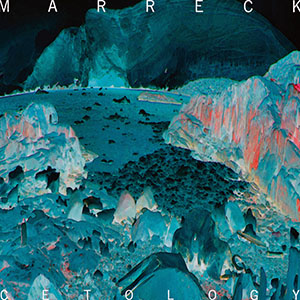 Cetology is one of those albums that sits somewhat close to an established style (in this case techno) on the genre spectrum, but just far enough out to sound like something else entirely. The elements are all here: synth leads, catchy basslines, programmed drums, but it all ends up put together in a way that might seem wrong, but because of that becomes a different and captivatingly unique beast entirely.
Cetology is one of those albums that sits somewhat close to an established style (in this case techno) on the genre spectrum, but just far enough out to sound like something else entirely. The elements are all here: synth leads, catchy basslines, programmed drums, but it all ends up put together in a way that might seem wrong, but because of that becomes a different and captivatingly unique beast entirely.
Marreck (aka Michael Hann, who also records as Rejections) utilizes all of those sounds and instruments we associate with dance music, but uses them to instead compose chaotic pieces that defied all expectations.The first piece, "Folio" has an analog-ish kick drum rhythm, with conventional synth leads and washes, but rather than being danceable it is instead an unrelenting barrage of drums contrasted with a frozen, glacial electronic progression.
"Duedecimo" also has Hann doing this extremely well:a stuttering, pummeling kick drum sequence is mixed with handclaps that more closely resemble automatic weapons fire.Along with this abrasive rhythm section, he blends in aggressive, noise heavy synth stabs and what sounds like a futuristic warning siren blasting outward.
On a piece such as "Somina", he lets the noise take the lead.A stuttering, harsh beat and distorted ambience results in a chugging, industrial-like sound that is as rhythmic as it is dissonant."Cuvier", on the other hand, keeps the rhythm aggressive but not distorted, with oddly processed sheets of synth noise washing forward.He keeps things together, with the noisier moments being reigned in before they get out of hand until the very end, where everything just explodes into a mass of futuristic war-like noise.
Harsh noise artists trying to make acid house techno would probably result in a song similar to "Luna", which sounds like familiar, squelchy synth sounds destroyed and quickly reassembled into a burst of rhythmic noise, all the while a light, beautiful synth passage underscores and contrasts the chaos.The closing "Octavo" has the ambience of an air conditioning system entering full on meltdown, with muffled, reverb heavy thumping beats and a dark, oppressive and claustrophobic feel that builds to its intense conclusion.
With so many noise artists trying to adopt techno sounds and beats these days, Marreck's album sounds like the opposite:an electronic artist using his dance-oriented gear to make abrasive blasts of harshness.Michael Hann's use of these familiar sounds, in these seemingly unnatural contexts, is this album’s greatest asset.Parts may seem familiar, but Cetology sounds like no other album, and no other artist could have made it.
samples:
 
Read More
- Administrator
- Albums and Singles
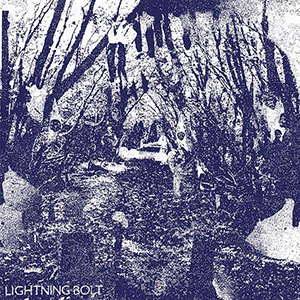 Few bands consisting of only a drummer/vocalist and bassist would be able to carry that arrangement for almost 16 years, but few bands are Lightning Bolt. Sticking true to their roots since 1999, Fantasy Empire is their first record in five years, and also their first recorded in a professional studio. This has not at all dulled their sound: it is still as blown out and distorted as ever, and as before memorable riffs and melodies lie beneath the primordial low-end sludge.
Few bands consisting of only a drummer/vocalist and bassist would be able to carry that arrangement for almost 16 years, but few bands are Lightning Bolt. Sticking true to their roots since 1999, Fantasy Empire is their first record in five years, and also their first recorded in a professional studio. This has not at all dulled their sound: it is still as blown out and distorted as ever, and as before memorable riffs and melodies lie beneath the primordial low-end sludge.
The more conventional studio setting that Fantasy Empire was recorded in may give a certain extra depth to the sound, but Brian Chippendale's manic drumming and unique, broken-megaphone like vocals lose none of their impact, nor does Brian Gibson's unique bass sound, which slips from bass to guitar to synth sounds and back again, often within the same song.
The opening song "The Metal East" encapsulates this wonderfully.What sounds like a conventional guitar riff, caked in distortion, is cast into a mass of low end fuzz and unrelenting pounding.What could almost pass for a keyboard slips in at the end to make things even weirder."King of My World" has the duo trying out an almost funky lurch, with an overall lighter feel to the song overall and again what could pass for a synthesizer in the lead.
The songs that stand out the most for me are the ones where the two Brians embrace their inner stoner and pump out their completely unique spin on riff-heavy '70s classic rock."Over the River and Through the Woods" may have that memorable big riff sound, but with that expected Lightning Bolt unhinged approach to music."Runaway Train" is another slab of big guitar(like) sounds and grimy, filthy low end bass guitar tones.With a memorable stomping beat and chaotic "rock out" closing, it is the perfect balance of structure and disorder.
The album concludes on the 11-plus minute "Snow White (& the 7 Dwarves Fans)", with the duo cramming as much of their sound into a single piece of music.While it might begin with a disturbingly clean, slower paced prog rock opening, the two cannot stay restrained for that long.Soon it is their normal blown out sound, with frenetic vocals vying with dense bass murk to be the most prevalent element to be heard.The final quarter is itself an impressive pairing of unnatural bass sounds and insanely rapid, complex drumming, shifting dynamics and just a brilliant mass of sound.
Lightning Bolt may have been using the same gimmick for a decade and a half, but Fantasy Empire shows that they manage to keep it fresh and innovative after all this time.With Chippendale and Gibson both using their instruments to make sounds that they were never intended to make, these songs manage to be odd outbursts of noise while still pushing out catchy riffs and memorable rhythms.
samples:
 
Read More

